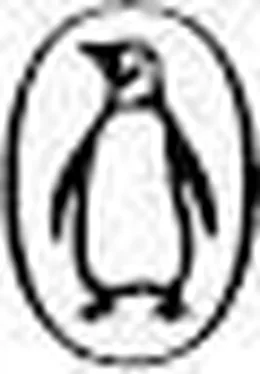Trevor, William - Children Of Dynmouth
Здесь есть возможность читать онлайн «Trevor, William - Children Of Dynmouth» весь текст электронной книги совершенно бесплатно (целиком полную версию без сокращений). В некоторых случаях можно слушать аудио, скачать через торрент в формате fb2 и присутствует краткое содержание. Год выпуска: 1976, Издательство: Penguin Publishing, Жанр: Старинная литература, на английском языке. Описание произведения, (предисловие) а так же отзывы посетителей доступны на портале библиотеки ЛибКат.
- Название:Children Of Dynmouth
- Автор:
- Издательство:Penguin Publishing
- Жанр:
- Год:1976
- ISBN:нет данных
- Рейтинг книги:4 / 5. Голосов: 1
-
Избранное:Добавить в избранное
- Отзывы:
-
Ваша оценка:
- 80
- 1
- 2
- 3
- 4
- 5
Children Of Dynmouth: краткое содержание, описание и аннотация
Предлагаем к чтению аннотацию, описание, краткое содержание или предисловие (зависит от того, что написал сам автор книги «Children Of Dynmouth»). Если вы не нашли необходимую информацию о книге — напишите в комментариях, мы постараемся отыскать её.
Children Of Dynmouth — читать онлайн бесплатно полную книгу (весь текст) целиком
Ниже представлен текст книги, разбитый по страницам. Система сохранения места последней прочитанной страницы, позволяет с удобством читать онлайн бесплатно книгу «Children Of Dynmouth», без необходимости каждый раз заново искать на чём Вы остановились. Поставьте закладку, и сможете в любой момент перейти на страницу, на которой закончили чтение.
Интервал:
Закладка:
‘I was wondering about the cash that was owing,’ the boy said. ‘I was passing and I looked in. I was wondering if you’d agree to loan me the suit.’ He smiled at her, and then he mentioned the money and the suit again.
She prised her husband’s fingers from the edge of the door and pulled him into the hall. He was weeping more noisily now. She banged the door, pushing at it with her foot because her hands were occupied. After a moment the bell rang again, but this time neither of them answered it.
He didn’t mind. It wasn’t polite of them not to answer the door, knowing that he was standing there, but it didn’t really matter. Tomorrow or the next day he’d call in again and she’d hand him over the money and the suit. Just like Dass would get hold of a pair of curtains.
In the small car-park of the Artilleryman’s Friend he waited by a Vauxhall that had been abandoned there ten months ago. The public house was closed. All the other cars had been driven away.
From the back-yard came the sound of bottles rattling as Mr Plant stacked crates on top of one another. He whistled as he did so.
Timothy crossed the car-park, glad that the publican was whistling since it suggested good humour. He passed through an opening in a wooden fence into the yard, which was lit only by the light from within the house. Mr Plant was in his shirtsleeves. His three-legged dog was eating a cork.
‘Cheers, Mr Plant,’ Timothy said.
Bent over a crate of bottles, with his back to Timothy, Mr Plant gave a startled grunt. He turned and peered into the shadows where Timothy was standing.
‘Who’s that?’
‘It’s me, sir. Young Timothy.’
Mr Plant took a bottle from the crate and advanced towards his visitor with it. He spoke in a low voice, saying a man could have a heart-attack, being crept up on like that.
‘Get off my property, son. I warned you this morning.’
‘I thought maybe you’d have time to think it over, Mr Plant.’
‘Keep your bloody voice down. Are you stupid or something? No one messes me, son. Clear off immediately.’
The voice of Mrs Plant called out from behind a lighted upstairs window, wanting to know whom her husband was talking to.
‘I don’t want to cause you any kerfuffle, Mr Plant. We’ll keep the secret –’
Mr Plant drove the base of the bottle at Timothy’s stomach, but Timothy side-stepped away from it.
‘Mrs Plant,’ Timothy said quite softly, and Mr Plant whispered that if he issued another sound he would thump him to a pulp. He drove the bottle in the direction of Timothy’s stomach again and he reached out with the fingers of his other hand in order to grasp the back of Timothy’s head.
‘Mrs Plant,’ Timothy said again, a little louder than before.
‘For God’s sake!’ whispered Mr Plant, and without further argument he agreed to convey the tin bath from Swines’ yard to the rectory garden on the morning of Easter Saturday. ‘Hop it,’ he whispered furiously. ‘Get to hell out of here now.’
As Timothy went he heard the voice of Mrs Plant again, demanding more sharply to know whom her husband was conversing with. The publican replied that he’d been talking to his dog.
All during supper, eating a pork chop and cauliflower and mashed potatoes, Stephen had wanted to be alone. He’d pushed forkfuls of food into his mouth, chewing it mechanically, drinking water to make swallowing easier. If he’d left it Mrs Blakey would have made a fuss, she’d have wanted to take his temperature, she’d have asked questions he couldn’t answer.
In bed it was easier to think. He’d never even seen the wedding-dress the boy had mentioned. His mother had shown him lots of things, photographs and even odds and ends she’d had as a child, but she’d never shown him her wedding-dress. It seemed strange that it should still be there, in a trunk. It seemed too strange to believe. Surely it was a lie that the boy had looked through a window of Primrose Cottage and seen it? Surely it was part of a make-believe, like imagining you were playing number three for Somerset? Timothy Gedge was a horrible sort of person, talking about honeymoons like that, saying Kate’s mother was peachy. Of course it was all lies.
He fell asleep, but hours later he woke up and felt again – as he’d felt for a moment in the hall when he’d arrived – that he shouldn’t be in this house. There was something wrong, there was something the matter. He felt it, not knowing what it was, like a feeling in a dream. He remembered now the faded green trunk the boy had mentioned. He could see it quite clearly when he thought about it. He could see his father lifting the lid and taking out the wedding-dress, not knowing what to do with it now that he was getting married again. In the warmth of his bed Stephen shuddered. When he tried to think he was unable to, as though he didn’t want to think, as though he was afraid to. ‘Mummy died,’ his father said again, and there seemed to be something wrong with the way he said it.
The Dynmouth Hards rode into the town that night and took away the telephone from the kiosk in Baptist Street. In the promenade bus-shelter they broke the window they hadn’t broken the last time they’d visited it. With their paint-guns they sprayed messages on the bonnets of four parked cars. They had hoped to find the Pakistani on his way back from night work in the steam laundry, but the Pakistani successfully avoided them. They swerved in front of Nurse Hackett’s Mini.
The men of Ring’s Amusements still worked in Sir Walter Raleigh Park, but the Dynmouth Hards knew better than to engage these men in any form of combat. They bought the last chips that were available in Phyl’s Phries and at one o’clock they drifted apart, not satisfied with their night out. Girls were dropped off at the ends of the roads where they lived, motor-cycles were pushed into front gardens and covered with P V C sheeting. The engines became quieter, purring quite ordinarily as they approached these resting places. In the yard of some lock-up garages one couple uncomfortably made love, their mock-leather garments still mostly in place. The girl, who happened never to enjoy this activity, ground her teeth together. ‘Lovely,’ she whispered through them, thankful when the youth had finished.
In the parents’ houses the Dynmouth Hards crept upstairs and into bedrooms in which other people slept, considerate because in their homes they were required to be. One of them dreamed that he was the mayor of a town in Australia. A girl who was a hairdresser gave Princess Elizabeth of Yugoslavia a blue rinse.
A better day today, Miss Lavant wrote in her diary, quite a bit of sunshine. Out shopping this morning. Mock’s have a new chap on the bacon counter. Apparently Mr Tares retired at the end of last week. Easter eggs in all the windows now, expensive. The nuns from the convent have bought a van. I was admiring it and one of them said it was a Fiat – Italian, which is suitable. While standing there I noticed Dr Greenslade drive by.
Miss Vine’s budgerigar Beano died that night, and so did old Miss Trimm, a favourite teacher once in Dynmouth Primary, whose declining years had tricked her into believing she’d mothered another son of God. She died in her sleep while dreaming that she was teaching geography, her mind quite lucid again. Beano died without dreaming about anything.
7
He clambered over the shingle at the bottom of the cliff and then up the cliff itself, arriving at the eleventh green. He was carrying the carrier-bag with the Union Jack on it.
He passed through the archway in the garden wall of Sea House, opening the white iron gate and leaving it open. He walked between shrubs and empty flower-beds, past the monkey-puzzle beneath which, in his confusion, he had stood the night before last, thinking about the wedding-dress. He’d had an addled idea that he wanted to stand there all night, so that first thing in the morning he could approach the kids and explain to them what it was he was after. As he paused by the monkey-puzzle now the dogs came running at him, barking and jumping, sniffing at his feet.
Читать дальшеИнтервал:
Закладка:
Похожие книги на «Children Of Dynmouth»
Представляем Вашему вниманию похожие книги на «Children Of Dynmouth» списком для выбора. Мы отобрали схожую по названию и смыслу литературу в надежде предоставить читателям больше вариантов отыскать новые, интересные, ещё непрочитанные произведения.
Обсуждение, отзывы о книге «Children Of Dynmouth» и просто собственные мнения читателей. Оставьте ваши комментарии, напишите, что Вы думаете о произведении, его смысле или главных героях. Укажите что конкретно понравилось, а что нет, и почему Вы так считаете.










